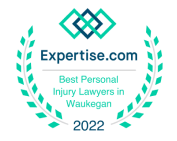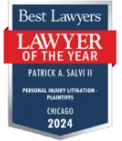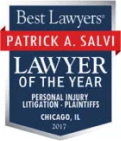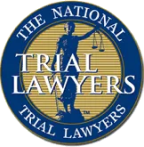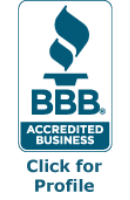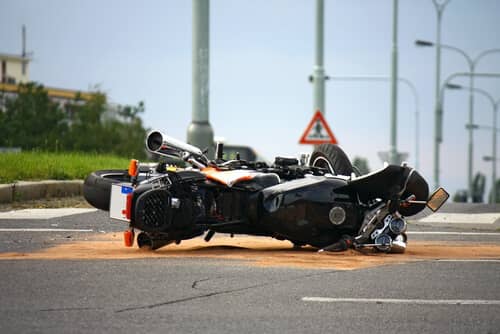
Motorcycle Accident Dos and Don'ts in Chicago
A motorcycle accident can be an extremely frightening experience. Many people are not certain what to do when they’ve been involved in such a crash.
However, it is very important that you act quickly and do certain things immediately after your accident in order to protect your legal rights and to ensure that you get the help you need afterwards.
The Chicago motorcycle accident lawyers of Salvi, Schostok & Pritchard P.C. have some helpful tips on “Dos and Don’ts” after a crash so you can ensure that you don’t jeopardize your health or your rights under Illinois law.
DO call the police right away after a crash.
Often, motorcycle accidents are caused by a negligent or careless driver. When someone else was to blame for causing your crash, that person can be sued, and you may obtain money for your losses. However, you’ll have to show how the crash happened. A police accident report can be the best evidence you have.
When you call the police after a motorcycle accident, an officer will come to the scene of the accident, write a report and get the contact information of everyone involved. This information is invaluable later when making a case for damages.
DON’T apologize for the accident or admit fault to anyone.
You don’t want to get into a situation where you admit fault or blame, especially if the circumstances of the accident are murky. You don’t even want to admit that the accident may have been partially your fault, since this could jeopardize your right to compensation.
When police come, answer their questions politely but don’t apologize or volunteer information that you don’t have to provide. Also, do not indicate that you were to blame for the accident when the facts are still being sorted out. Police can review the scene and make their own determination.
DO get medical help immediately when a crash occurs.
Getting medical help should be a top priority after a crash, right along with calling the police. You should always go and get checked out even if you do not necessarily feel as if you’ve been badly hurt. Some medical issues don’t show up right away. For example, whiplash may not begin causing symptoms for 24-48 hours. Brain injuries or internal bleeding/organ damage also may not show symptoms until time has passed.
When you get help from a medical professional right away, you can get checked out to ensure that you don’t have any serious internal injuries. Early medical intervention could potentially save your life if you have bleeding in the brain or another serious internal problem.
The medical reports could also be useful in helping to prove you were injured when making an accident claim. If you delay and don’t get medical help for days or weeks, then the other driver in the crash could argue that you are exaggerating your injuries or that they weren’t caused by the crash. Getting prompt medical help ensures that you won’t have that problem.
DON’T move yourself or anyone else who may have been seriously hurt.
If you or anyone else in the accident was seriously hurt, then you could do more damage by trying to move out of the position that you are in or by trying to move the other person. Some injuries, especially those to the spine, could be made worse if you try to move after the injury happened. Instead, you should call 911 and let rescuers come to your aid or to the aid of others who are injured.
To make sure no one suffers more serious injury after the accident, you should try to secure the scene while you wait for police. If you or anyone else is healthy enough, it can be a good idea to put up flares to alert other drivers of the crash.
Whether to move the cars and motorcycle out of the way before police come will depend upon whether anyone is seriously hurt, whether the cars/motorcycle are drivable and whether the cars/bike are in a location where they could cause other drivers to get into a crash. Often, it is best to leave them where they are so police can see what occurred.
DO gather evidence at the scene of the crash.
Because you need to prove your case to recover compensation, you’ll want to have as much information as you can. This means that you’ll want to have evidence, including photographs from the accident scene. Getting the names of witnesses at the crash can also be helpful in case your version of the events is disputed. Writing down your own account of the crash can be useful while the details are fresh in your mind.
DON’T let the other driver convince you not to contact the insurance company.
Often, when a driver causes an accident, the driver will want to leave the insurance companies out of the situation because of fear of insurance premiums going up. The other driver might promise to cover your costs in exchange for you not calling the insurer. Don’t ever do this!
There are many reasons why this is a terrible idea. First and foremost, you could end up being much more seriously hurt than you initially thought. If you suffer hundreds-of-thousands of dollars in injuries, the other driver is not going to be able to pay out of pocket. Second, the other driver might also not be trustworthy do what they promise.
If you didn’t call the insurance company, and the other driver didn’t pay or couldn’t pay, you’d likely have little recourse since claims normally need to be reported to your insurer within a set period of time, and important evidence may have been lost.
DO provide the information your insurance company needs.
When you contact your insurance company, you’ll need to answer some basic questions about the accident. You should answer the questions succinctly and provide the necessary information, while at the same time making sure you do not inadvertently say anything to adversely affect your claim. It can be helpful to have an experienced personal injury lawyer representing your interests to deal with the insurer on your behalf.
When the insurance company for the other driver asks you questions, you’ll need to be even more careful. You don’t want to help them make a case against you or undermine your claim for damages.
DON’T trust that any insurance company is on your side.
Neither your own insurance company nor the insurance company of the other driver is solely focused on protecting your needs. In fact, their focus is on protecting their profit margins. That can be directly at odds with your interests. While your own insurer may be more helpful to you than the insurance company of the other driver, the company is still not a strong and solid advocate for your rights.
Do contact a motorcycle accident lawyer as soon as possible after the crash.
A motorcycle accident can lead to expensive losses, and you cannot count on any insurance company to get you compensated fairly. You need help understanding your rights, gathering evidence and proving your case. An experienced accident lawyer is the right person to help you.
At Salvi, Schostok & Pritchard P.C., our experienced motorcycle accident attorneys have the legal knowledge and skills to represent your interests, fight for you and seek justice for you. To learn more about how we can help, give us a call or contact us online today. We work with clients in Chicago and across Illinois. Our initial consultations are always free and carry no obligations.
